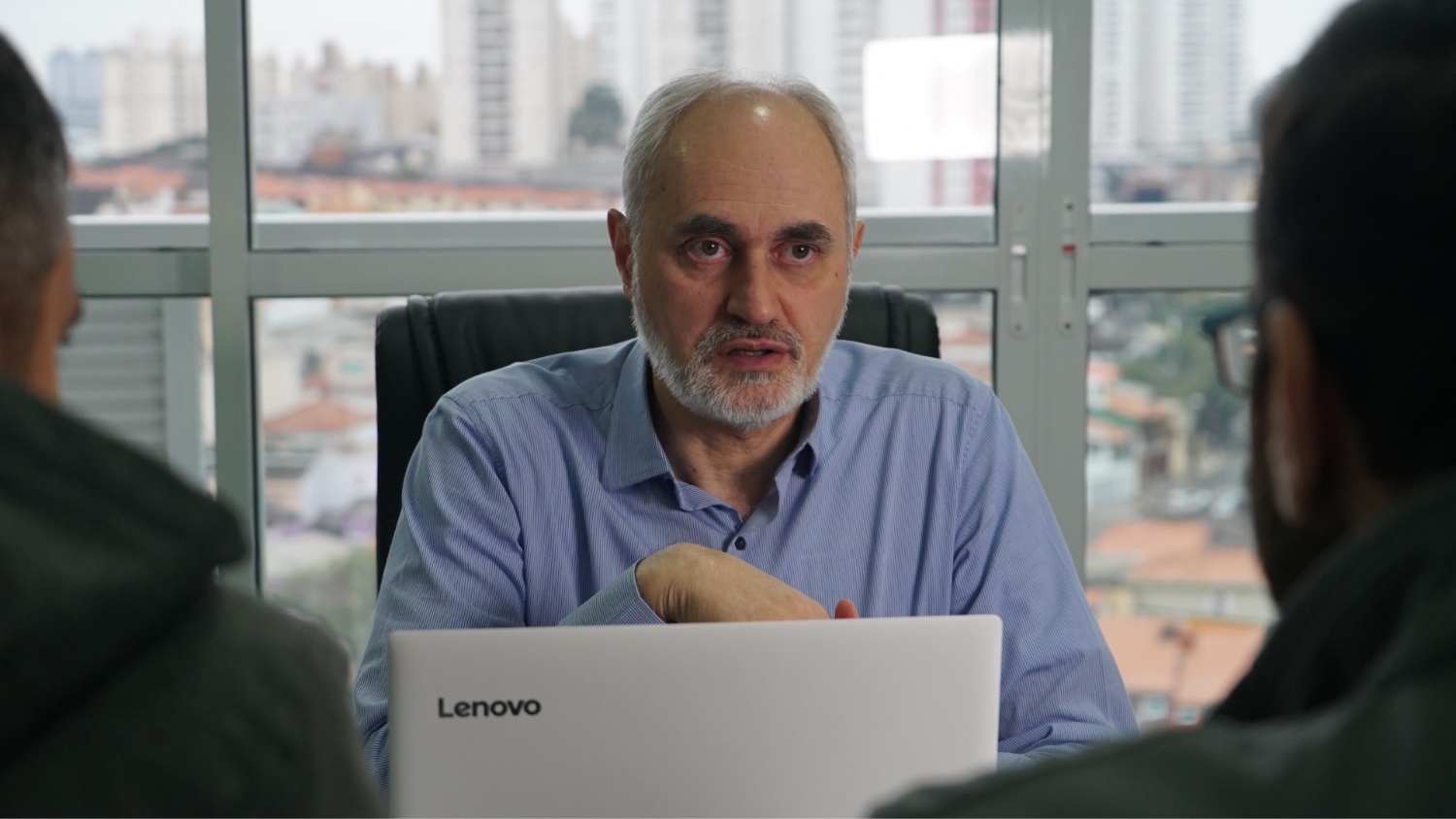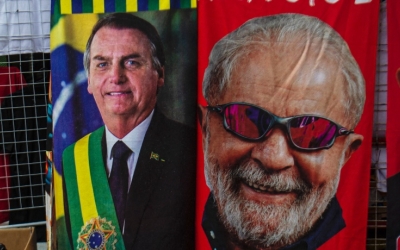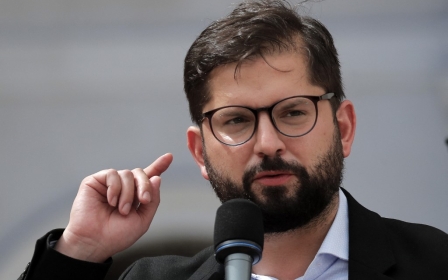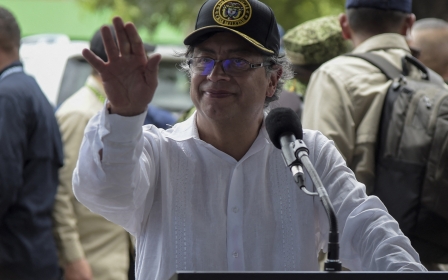Brazil elections: Arab diaspora fear four more years of Bolsonaro

Brazilian Arabs and Muslims have responded with a mix of frustration, exasperation and anger over prospects that far-right incumbent President Jair Bolsonaro could secure another term in office.
Following a closer than expected first round of voting, Bolsonaro and leftist former president Luiz Inacio Lula da Silva, popularly known as Lula, go into the second round on Sunday amid great uncertainty.
A brash Christian nationalist widely criticised for mishandling Brazil's Covid-19 response, Bolsonaro faces a tough fight from Lula - one of Latin America's most storied leftists.
'Bolsonaro is primarily responsible for putting Brazil in the worst health crisis in its history'
- Khaled al-Rob, doctor
Lula enjoys overwhelming support among Black, indigenous Brazilians as well as the working class, for social policies that lifted millions out of poverty during his two terms in office.
Still, he's deplored by others after major corruption scandals tarnished his leftist Workers' Party and sent him to jail for more than a year.
New MEE newsletter: Jerusalem Dispatch
Sign up to get the latest insights and analysis on Israel-Palestine, alongside Turkey Unpacked and other MEE newsletters
According to the latest polls, Bolsonaro trails by a small margin despite heavy campaign spending and support from evangelical groups.
In a bid to shore up support, Bolsonaro has tried to cast his re-election bid in biblical tones, even calling the race a "fight between good and evil".
Many of the country's estimated ten million Arabs say such framing, as well as anti-immigrant rhetoric, is tapping into a vein of anger and bigotry.
Ahmed Said Mourad, the former Deputy of Sao Paulo's parliament, told Middle East Eye that Bolsonaro could falter at the polls after the country had to endure several political and economic earthquakes during his first term.
"I don't think Bolsonaro will secure the presidency again, but, if it happens, we'll witness more dictatorial acts than we have seen before.
"We also can't ignore the fact that right-leaning parties allied with Bolsonaro control the Parliament with 99 seats and the Senate with 13 seats. This strengthens his conservative movement even if he does not win."
'Fear and anxiety'
Fears are also growing that Bolsonaro could refuse to accept defeat in Sunday's election, after his son claimed the president was the victim of "the greatest electoral fraud ever seen".
The assertion has drawn comparisons with the language used by former US President Donald Trump after he lost the 2020 election to Joe Biden.
Many fear that Bolsonaro's decision to cast doubt on the election result, as well as the Brazilian military's decision to conduct a parallel vote count during the first round of voting, could see a Trumpian-style insurrection on the scale of the 6 January riot.
According to Mourad, the Bolsonaro camp's decision to mimic Trump's rhetoric comes as no surprise, with the president repeatedly demonstrating anti-democratic behaviour.
Observers say the president has stoked tensions with indigenous Brazilians and failed to engage with Arab Brazilians, who account for almost five percent of the population.
"Bolsonaro has always encouraged violence and crimes, as he wants everyone to have a gun. This created a state of constant fear and anxiety among the members of the Brazilian people and the Arab community," Mourad said.
"During his four years, Bolsonaro did not open new doors or build any bridges with other countries or the Arabic community in particular; he even didn't maintain Brazil's foreign relations."
More Bolsonaro, more crises?
Since Bolsonaro's election in 2018, the conditions faced by the working class have worsened profoundly. Tens of millions have been pushed below the poverty line, while his government's Covid-denial and failed policies resulted in more than 686,000 deaths, second in number only to the United States.
"Bolsonaro is primarily responsible for putting Brazil in the worst health crisis in its history, due to his disregard of the crisis, rejection of the effectiveness of the vaccine and the social distancing measures," Khaled al-Rob, a Jordanian-Brazilian doctor who worked on the front line during the pandemic at the Sao Jose de Urubici hospital, told MEE.
"Bolsonaro caused severe damage to Brazil's health system with his irrational decisions during the coronavirus pandemic. If he wins the second round and becomes president for another four years, I do not expect any improvement in the current situation, and it even may worsen."
Jehad Hamada, the president of the Latin-Arab Centre for Strategic Studies in Sao Paulo, said Bolsonaro's relationship with the Arab community was problematic at the start of his presidency, until he realised the importance of improving relations with major trade partners in the Middle East.
Brazil's exports to the Middle East have swollen in recent years, especially halal meat exports. But a potential move of the Brazilian embassy to Jerusalem in 2019 risked undermining the trade.
Despite Bolsanaro's controversial decision to recognise Israel's claim over Jerusalem, he has maintained sizeable support among Arab Brazilians due to individual concerns surrounding the economy.
In July, the Brazil & Arab Countries Economic Forum said relations had strengthened under Bolsonaro, with the Arab world now considered Brazil's third-largest international market, with trade reaching a record high of $24bn in 2021.
"From my point of view, Brazil-Arab ties are getting stronger and we'll witness more improvement in relations with Arab communities if Bolsonaro returns, because he saw with his own eyes the result of hostility with the Arabs," Hamada said.
Ahmed Alshaib, a Palestinian national and civil engineer who arrived in Brazil just four years ago, agreed, saying he saw economic benefits with a second Bolsonaro term along with better foreign policy priorities.
"During his presidency, Brazil has witnessed progress and development in local and international relations," Alshaib told MEE.
"Today, there are millions of people of Arab descent [in Brazil]. Those across Latin America are an example of immigrants who have successfully integrated into the host country as most Brazilian citizens are open to foreign cultures."
The business world is also likely to be receptive to another four more years of Bolsonaro. In recent weeks, talk of reforms and privatisation have boosted shares in state-controlled companies.
But should Bolsonaro lose, polls indicate that Lula will lack a majority in the new Congress, where a strong establishment bloc known as the "Centrao" is likely to call the shots.
Middle East Eye delivers independent and unrivalled coverage and analysis of the Middle East, North Africa and beyond. To learn more about republishing this content and the associated fees, please fill out this form. More about MEE can be found here.








